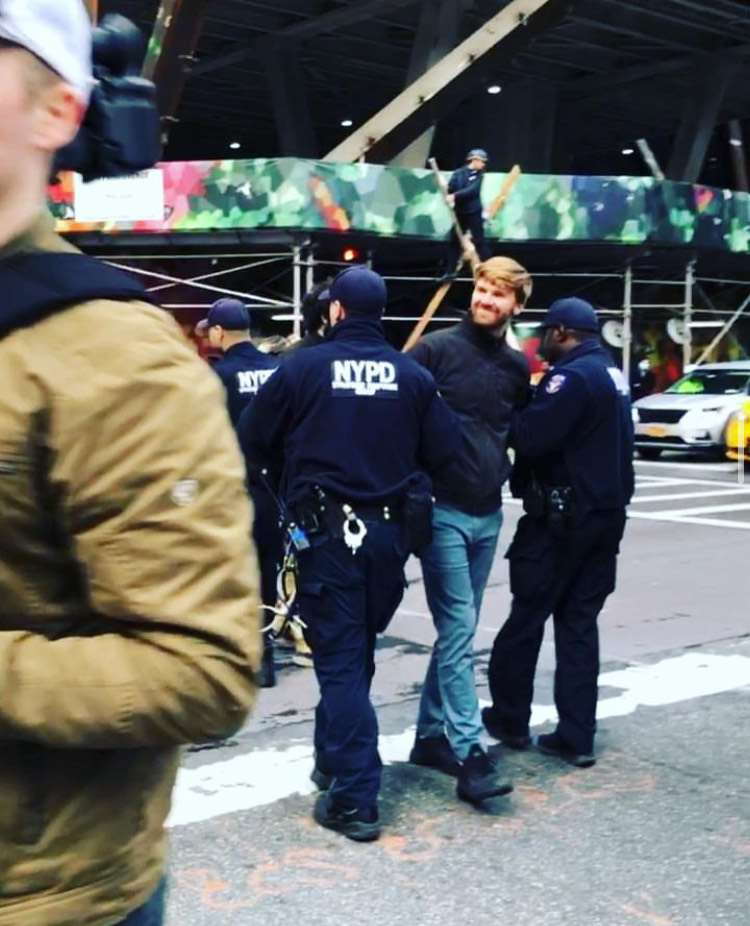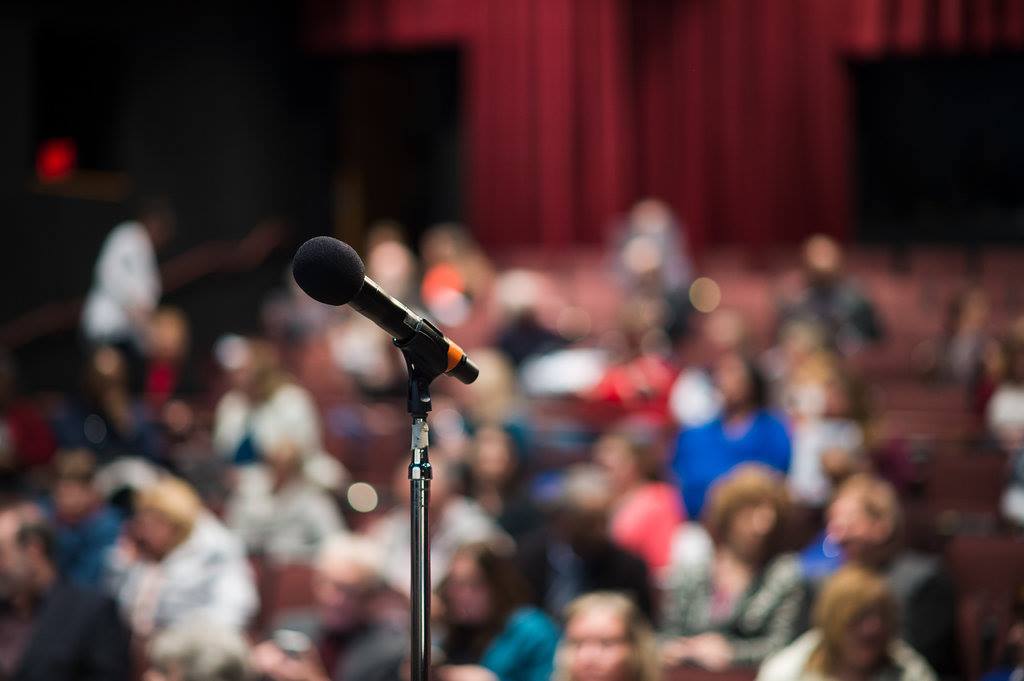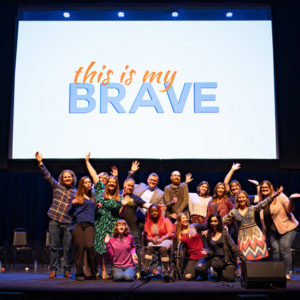Guest Blog: Nathan Smith – Earth Day
It’s Earth Day. 2024.
I joined the movement in 2019, five years ago.
The first Earth Day was…’69 I think. Forced Nixon to form the EPA and pass legislation like the Clean Air and Water Act. It wasn’t too long ago that you could light the Hudson River and Chicago River on fire.
I would ask us all this Earth Day to pause and think about why we think whatever it is we think regarding climate change, how bad it is or not, and what we think of the activism around it— ask where those thoughts might come from and why.
Does recycling come to mind? Maybe “hoax”? Or maybe it conjures images of an uninhabitable rock standing where there was once the only planet known to have sprouted life? The month after I was born, on a sweltering early summer day, James Hansen of NASA addressed Congress saying that climate change is happening and that we can track it. 35 years ago. 35 years.
The most basic of conclusions from that testimony, and from the fact that climate change is happening because of human activity, namely greenhouse gas emissions, is that we need to end these emissions and find another way. 35 years ago, both political parties were ready to do just that. Time magazine named Earth the Planet of the Year. President Bush ran as an environmentalist. We were going to avoid the collapse of Earth’s life systems, the loss of crops and coral reefs, the loss of ice caps that help regulate our seasons and weather patterns, the loss of species, countless species, and the loss of habitable land. We heeded Hansen’s address. We were going to act.
My life today, this very day, would look a lot different if that was where that story had ended. I would not be going to a festival this evening to preview a new play I’m producing about climate change. I would not have started a festival of my own. I would never have chained myself to scientist Rose Abramoff, or a 500-pound cement bucket, or glued myself to what is called a “tripod”—an activist, teepee-like structure that someone usually sits on top of, that I watched someone almost get knocked off of when a car came careening at it. I would never have been in actions surrounded by police boots and helicopters, or on frontlines being stared down by unmarked security forces brandishing machine guns—this on American soil, this under Joe Biden. I would have never been a part of interrupting Ted Cruz on The View, or Tom Donilon of BlackRock (the world’s largest investment firm, richer than every country besides the US and China), or been part of blocking the distribution of the New York Times for making ads for fossil fuel companies about how they’re going to save the day, all while claiming to be the standard bearer for climate reporting.
You may believe such actions to be extreme, unnecessary, or criminal. I would ask, again, where those thoughts come from—how do you know? I do not try to escape the penalties. I respect the law. I willingly accept the jail time and sentences that follow such measures, that is part of how nonviolent civil disobedience works. I wish all parties to be subject to the rule of law. I think it’s a good way to run a society, maybe the best. This does not mean I believe in Big Government. It means law and representation are what we pretend America to be founded on and run by. And if you think the biggest players in our country submit themselves equally to the rule of law, or that you and I have the same amount of representation as BlackRock (whose clients donate equally to each party, ensuring whatever the election outcome, they win), if you think there’s no need for regular people to rise up every once in a while to tamp down the tyranny this country was born rebuking, I’d ask if we’re on the same planet.
Nonviolent civil disobedience is the most effective way for regular people to get fast change. This does not mean you don’t also effect change through given avenues—local organizing, community actions, business partnerships, legislation, running for office, etc. It means usually that you have been trying these things for a long time (35 years to be exact) and that they are failing. *Why?* Nonviolent civil disobedience is why we have the weekend. It is why you have retirement or insurance benefits if you have any. It is why employers can’t put five-year-olds to work and toss them to the street if they lose a limb. Many of the things we consider the best parts of American life were won through social and political struggles powered by protest.
You may have already qualified me as an extreme leftist and stopped really listening to any of this hundreds of words ago. I am registered as an Independent, but I’ll accept “leftist” given how everything we think and talk about these days is forced through the lens of two political parties. I do, however, adamantly refute these two parties running everything under the sun, and especially them coming between you and I. I do not believe that you and I talking or being able to connect must be pre-determined by our allegiances to political institutions in far-off capitals. “You and me” is far more important to me than “Republican” or “Democrat.” In my way of seeing, political parties like any other entity are concerned first and foremost with themselves, their own pockets, their own power, so it is actually that you and I are in one party as the American citizenry, while they are institutional powers that I sometimes align with but more often don’t.
I bring all this up because when I talk about climate change, I am always bracing for antagonism, disagreement, confusion, reluctance to “go there,” or outright violence. Whether I’m with my blue-no-matter-who family at dinner, with reporters, or with people working along oil pipelines, whatever place on the political spectrum, I am bracing for whatever people already believe to trouble things and am tracking how to traverse this. It is usually no easier of a conversation with people on the left than with the right.
When my good, good friend Marlon asked if I would write this, I automatically assumed the type of audiences who might be reading it. Of course, I don’t know you. But I assume this is not only a hyper-left-leaning majority like the part of Northern California that Marlon and I met in. I would assume not many of you know what “1.5 degrees” means (because most of the country doesn’t), and that not all of you would place climate change at the top of your list of concerns for this country and the planet. I would assume many of you might think climate change is overblown, not really a problem if not fully made up by private interests. Maybe you know it’s bad, but not that bad? Or maybe you know it’s happening, know it’s bad, know we’re not doing enough and thus the planet is going to totally fall apart, but you don’t know what any of that actually looks like, like a high school student I worked with who said they saw a TikTok that the oceans were going to reach the Rockies.
Again, I would ask—why? Where did your ideas about something as complex as the Earth’s systems and our impact on them come from? Climate change isn’t the kind of thing you learn about alone. Someone has to tell you about it. Someone has to tell you whether it’s happening or not. It’s not something like “fire is hot” or “ice is cold” that you can discover alone.
Most Americans, nearly 80% know the Earth is changing. Some think it’s God’s will. Some think it’s natural. Some think it’s human-induced and are very concerned.
The question is no longer whether you believe in climate change or not. That was a talking point invented by oil companies decades ago. Well, actually, it was invented by PR firms that oil companies hired who had spun the same BS about cigarettes—“it’s not that bad,” “the science is inconclusive.” This is not a conspiracy theory. This is a fact. These companies for decades have been lying to us and infiltrating our two-party system to stall action on the crisis. British Petroleum (BP) invented the idea of a “carbon footprint”— individuals tracking their own use of fossil fuels, rather than the companies producing them.
35 years ago the richest, most powerful industry in HISTORY was put on notice: your product is destroying the life systems of this planet. They went on the counter-offensive, and to this day, talking about climate change, my first and primary concern is how crazy you’re going to think I am, whether you think I’m chicken little or not, because of the effect this counter-offensive had.
Am I chicken little? Is AMOC collapsing, or is it not? How much sea level rise is in the Greenland Ice Sheet or the West Antarctic Ice Sheet? Are there projections saying both are past the point of no return? Do you even know?
Why? Who’s been most responsible for telling you, or not telling you? Me? The Sierra Club? Big Solar? Who has more direct sway over our political parties? Who donates more to them? Who gets their people on air, their pundits, their propaganda? Who funds the advertising of our Fourth Estate? The Friends of the Earth? Who has the deepest pockets, and the best connections? Whose business do we need to shut down?
This is not some shadowy enterprise. This can be Googled. Who is spending how much money to fund legislation and form fake grassroots organizations is public knowledge. And the quickest route to the answer: global emissions are increasing. Emissions are increasing. Emissions are increasing. 35 years ago we knew one thing: emissions need to decrease.
Instead, they’re to this day increasing. The oil business is booming.
I know the polysynthetic material my clothes are made of comes from is oil. My father worked for Occidental Petroleum. I am not an oil hater. I just also know that 4 degrees of heating is where maintaining complex human civilization becomes questionable, and that we’re on track for that level of heating by the end of the century. I know Lake Chad which supplied millions of people in Africa with fresh water is almost gone. I know restrictions on the Colorado River and the farming in that region will only increase.
I would ask you to pause and see the forest through the trees. That unsurprisingly the people with the most money and influence are winning. That whatever you think of what I’ve said, they’re the players with the most seats at this table, and they have completely dominated this conversation for 35 years to devastating effect.
WE ARE LOSING THIS FIGHT. 35 years later I have spent the majority of these words just on trying to establish a reality that is very effectively being kept from us. We are not on track for a safe future. Even if we stopped all emissions today, the impacts of current warming will still be heinous. This Earth Day, I challenge you this week to spend 5 minutes a day Googling things about climate change, and things mentioned here, and see what you think by the end of it. In the words of our revolutionary roots: Join, or die, baby. Join, or die.
Nate Smith is a producer, writer, and activist based in New York. He is the Founding Director of The Sixth Fest, a climate change festival named after the sixth mass extinction event currently underway. He is Artistic Director of A Theatre Group in Silverton, CO, a 500-person rural town at 9,318 ft in the Rockies. He is also a company member of The Still Point Theatre Collective and a proud member of the stage actors’ union, AEA. He holds a degree in rhetoric from UC Berkeley.


